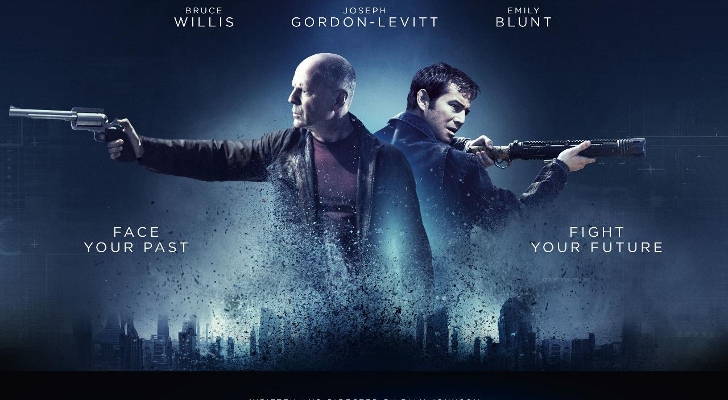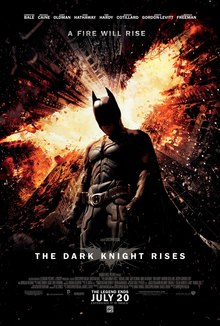
Don Jon is Joseph
Gordon-Levitt’s feature debut as both a writer and a director, an odd romantic
comedy about a young womaniser from Brooklyn who tries to wean himself off porn
after he gets a real, flesh and blood girlfriend. It has things to say about
how men use pornography but how deep into this difficult subject is
Gordon-Levitt willing to go?
Jon (Joseph Gordon-Levitt) goes
to clubs and takes a woman, never less than an 8 out of 10, home every time.
However, sexual intercourse is always unfulfilling to him since he has
developed an addiction to porn. As a result of this addiction, his ideas about
sex are grossly unrealistic if not selfish and misogynistic. To his friends
(Rob Brown and Jeremy Luke), however, he is a god and he likes the way they
think. Until he spots Barbara Sugarman (Scarlett Johansson), a 10 or ‘dime’,
who doesn’t fall for his practised, over-confident advances. It may well be
love but how does their relationship compare with his porn habit?
Early on, the film offers a
fast-paced introduction to Jon’s lifestyle, full of editing and camera tricks.
It is also surprisingly fearless in its representation of porn, which is not
used for easy laughs, but tackled with a degree of realism and seriousness. Nor
is it immediately represented as particularly damaging, though one’s level of
scepticism towards Jon’s self-justifying voiceover will probably depend on
one’s own feelings about pornography. Don Jon is about what men use porn
for, rather than the nature of porn itself, and as a result it may be queasily
recognisable to some men.
The film also offers, albeit
briefly, an alternative reading of romantic Hollywood films, suggesting that
they are a kind of porn as well. Instead of offering instant sexual
gratification, Hollywood films offer an idealised version of love and
self-sacrifice which, as Don Jon suggests, may be just as damaging to
one’s sense of reality. Barbara loves cheesy films but cannot come to terms
with the fact that Jon likes porn – or that he does his own housework -
suggesting that one idealised form is just as incompatible as the other. Hence,
while Jon is disappointed with sexual intercourse, Barbara is disappointed by
their relationship. However, if realism and an emotional openness are advocated
as the best way towards a healthy relationship – as they are in Cassavetes’
similarly themed Minnie and Moskowitz - there is little hint of this in
the film, which ends somewhere close to the romantic Hollywood standard.
Don Jon has ideas that
make sense but it does not look at them in any depth. The idea of pornography
having a Hollywood equivalent is vaguely drawn and left inconclusive.
Similarly, the film ends very quickly and easily; making Jon’s problem seem
like one that was very easy to shrug off and, hence, not really a problem. Jon
finds happiness in a “real” relationship – a real relationship in movie terms
rather than in terms of reality – too suddenly, without difficultly or jeopardy
and without any long-term effects. It ends up being just as convincing as Jon’s
feeble attempts to justify his porn habit at the beginning of the film. Also,
Jon’s misogyny, very clear in the early part of the film, is left unaddressed.
Ultimately, Don Jon comes to resemble a morality tale – one that has
something valid to say about the effects of pornography but which uses the
conservative language of true love to advocate something equally unrealistic.
Undercutting the film’s serious
intentions further is Gordon-Levitt’s use of caricature. His family (Tony
Danza, Glenne Headly and Brie Larson) seems like something out of an outrageous
sitcom, constantly shouting, swearing excessively and always close to
fistfights. Meanwhile Jon’s antics while on a night-out or his aggressive
driving are far from subtly drawn and often simply played for laughs. Nearly
every actor overacts, clearly with the impression that the film was supposed to
be more flamboyant and silly than Gordon-Levitt really intended. The only
serious performance comes from Julianne Moore, and feels, like the character,
out of place. As a drama, it is exaggerated, which makes the happy but serious
pro-romance ending all the more ill fitting, especially since it looks as light
and insubstantial as the pointedly light and insubstantial beginning. Heartfelt
drama isn’t really part of this film’s repertoire. And though the film is
funny, it is not funny enough throughout to make up for the underdeveloped
dramatics.
Don Jon is a surprisingly confident debut from Joseph
Gordon-Levitt and his choice of subject matter displays a bravery and wealth of
ideas. It is very possible that his next film will be much better, and much
more concentrated. As it stands, Don Jon is a diverting entertainment but rather feeble as a
warning about the effects of pornography or as a drama about unrealistic
expectations.
See also: Lovelace


